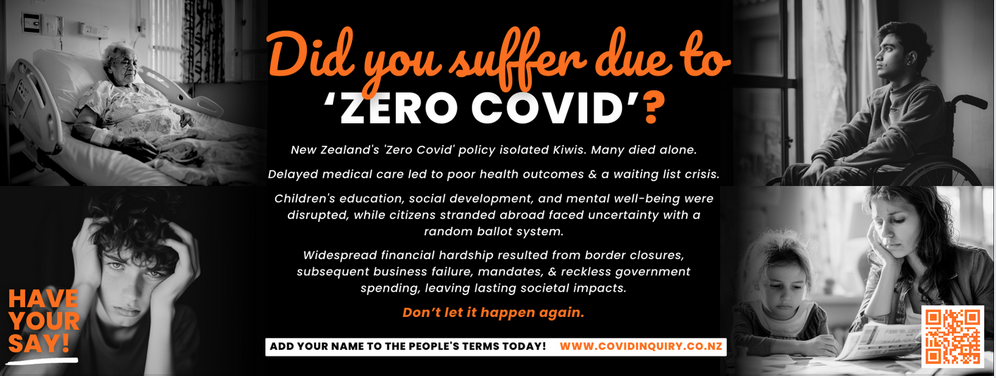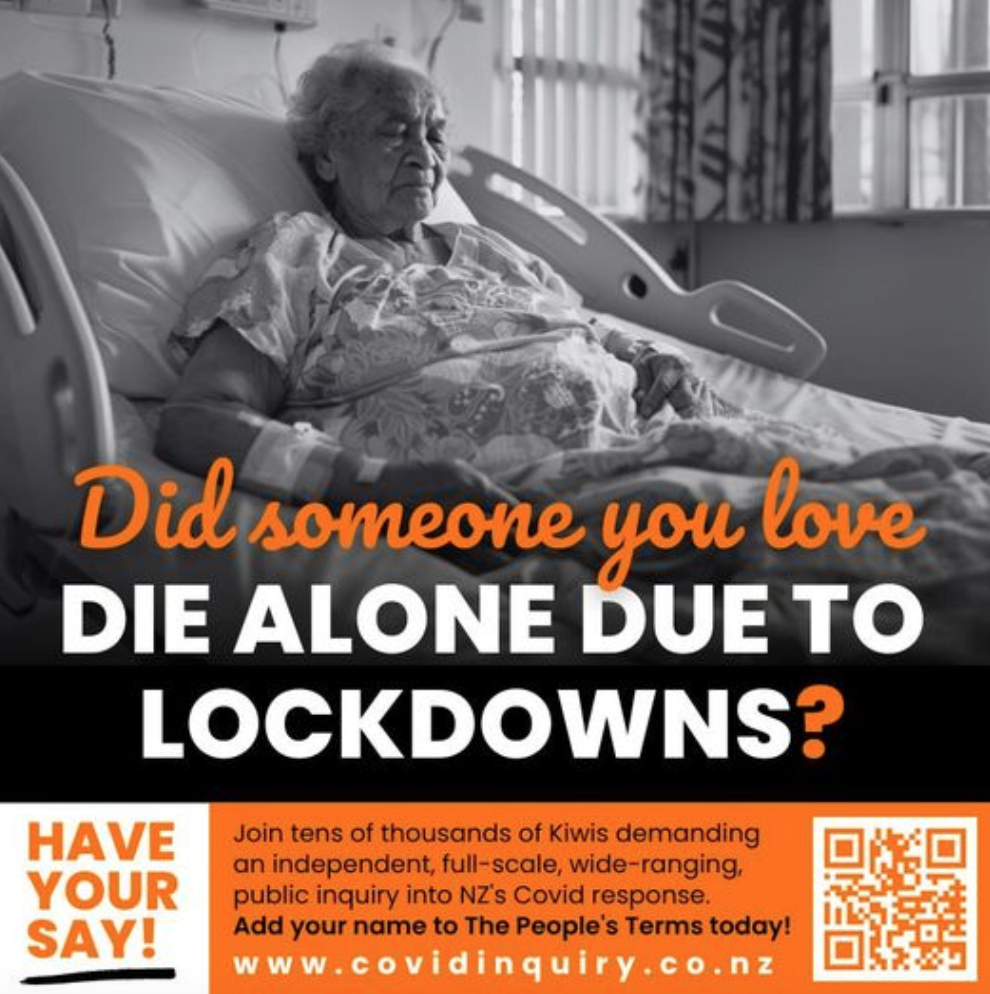RCR has created alternative Terms of References for the promised Covid Inquiry – ones that do look at the science, that will demand accountability and that will include the safety and efficacy of the Pfizer product, among many other things. These ToRs are fit for purpose and will do the job, but only if we can achieve a critical mass. Visit www.covidinquiry.co.nz to sign by March 24.

Reality Check Radio has laid out The People’s Terms, to help the public easily make a submission to the Royal Commission on the Covid Inquiry. The consultation on the terms of reference is open until March 24 – next Sunday. You can listen to Alia Bland and Claire Deeks discuss The People’s Terms here.
They have also produced a series of hard hitting interviews to support submissions – The Inquiry Sessions, including this one with Commissioner John Whitehead. Listen here.
What are The People’s Terms?
The scope of the current COVID-19 Inquiry is narrow and restrictive, seeking to ‘learn lessons’ and not find fault.
The People’s Terms is an independent, comprehensive, and targeted set of terms that fundamentally redefines how the inquiry should operate and what will be reviewed.
They will make sure (if enough people sign) that the Covid-19 inquiry investigates:
The Preliminary Response
- Emergency powers
- Masking, social distancing, gathering restrictions
- Modelling
- Essential / non-essential businesses
- Government & media messaging
The Government Response
- Alert levels, border closure & MIQ
- Coordination with global agencies (passport systems, etc.)
- Planning & cost-benefit analyses
- Overseas experience and statistical results
- Conflicts of interest
The Vaccine Response
- Contracts, approval processes
- Surveillance & assessment of safety and efficacy
- Mandates, incentive schemes, exemptions
- Monitoring systems & ACC
- Advertising
The Social and Economic Impacts
- Bill of Rights implications
- Excess deaths
- Budgetary effects & Inflation
- Judicial approaches
- Systems impacts: health, education, emergency services, and defence.
- Economic and commercial impacts
